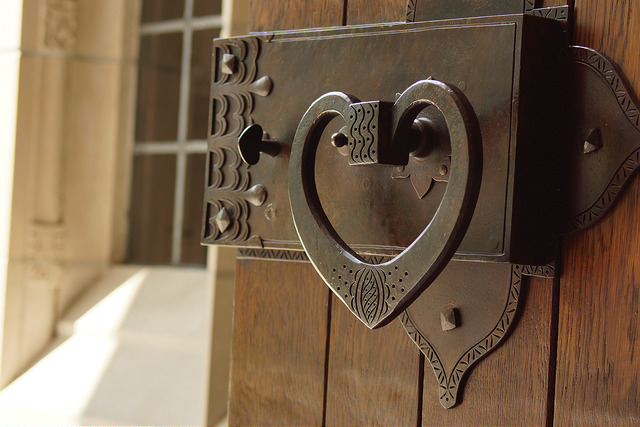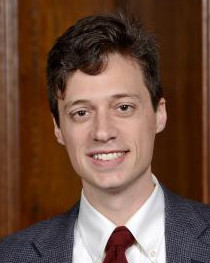In Search of a Rectification of Names
After eighty years, the college fellowship that I attended as an undergraduate at Princeton has altered its name
 After eighty years, the college fellowship that I attended as an undergraduate at Princeton has altered its name. “Princeton Evangelical Fellowship” is gone, replaced by “Princeton Christian Fellowship.” I was not surprised or annoyed. The original title had discomfited some members for years, and Trump’s election only heightened matters. Already back in August I had heard that a name change was certain. Nonetheless, I frowned a little when I read a Christianity Today article on the shift earlier this month. Intimate familial squabbles seemed tawdry once posted on the website of a major magazine.
After eighty years, the college fellowship that I attended as an undergraduate at Princeton has altered its name. “Princeton Evangelical Fellowship” is gone, replaced by “Princeton Christian Fellowship.” I was not surprised or annoyed. The original title had discomfited some members for years, and Trump’s election only heightened matters. Already back in August I had heard that a name change was certain. Nonetheless, I frowned a little when I read a Christianity Today article on the shift earlier this month. Intimate familial squabbles seemed tawdry once posted on the website of a major magazine.
Princeton Evangelical Fellowship (PEF) is one of the oldest college ministries in America, predating all American chapters of InterVarsity by several years, and decades older than Campus Crusade or Reformed University Fellowship. According to the story, the Plymouth Brethren missionary Donald Fullerton (Princeton University, class of 1913) founded PEF in 1931 when the ship carrying him to British India was forced to return to port for repairs just a day after embarking. Fullerton took the detour as a sign from God and left foreign missions for campus ministry.
The word “evangelical” had a different valence in 1931. Princeton was then at the center of the Fundamentalism-Modernism controversy. J. Gresham Machen, Cornelius Van Til, and their supporters had left Princeton Theological Seminary to establish Westminster Seminary in Philadelphia just two years before. Fullerton was a Fundamentalist by any normal definition, and he admired Machen and company. Nonetheless, Fullerton deliberately titled the fellowship “Evangelical”—then a word claimed by Fundamentalists and Modernists alike—rather than “Bible” or “Fundamental.” “Evangelical” was an inclusive name. In 1931, even the most notorious Modernists in America—figures like Harry Emerson Fosdick or Henry Sloane Coffin—still proudly called themselves “evangelical.”
The current leaders of Princeton Christian Fellowship (PCF), then, follow in the footsteps of their founder when they prefer a vague, inoffensive title to more precise descriptors. According to the Princeton University student paper, for instance, Rev. William Boyce, the executive secretary of PCF, explained the change this way: “the term evangelical is increasingly either confusing, or unknown, or misunderstood to students … it’s no longer a helpful word to identify ourselves.” Branding, not theology, drove the name change.
Unlike in 1931, almost no one identifies as “evangelical” in America today. Not without a great deal of prodding and creative reinterpretation by the questioner. Pew and Gallup pollsters assure us that around 25% of Americans are evangelicals. Yet, when you talk to this 25%, you discover that they really call themselves “Baptist,” or “Wesleyan,” or “Assembly of God,” or most commonly of all, “Christian.” Americans, after all, are largely ignorant about their own denominational distinctions and histories. Just last week, I had a conversation with a confessed Presbyterian who was shocked to learn that her church was Calvinist. “Aren’t Calvinists the bad guys?” she asked me.
“Evangelical” is a label that pollsters define to their own benefit. Often, they decide to define the word free of doctrine. Here is one common polling method for screening out evangelicals. First, see if a person will respond “yes” to innocuous questions such as Do you believe the Bible is the word of God? or Would you encourage non-Christians to believe in Jesus? Almost all Christians over the last two millennia would have assented to these questions. Next, exclude people who could not possibly be evangelical—at least according to the pollster’s own theological assumptions. Thus, if someone is Catholic or a mainliner or a person of color or a non-Christian, then that person can never be designated “evangelical” in the poll, no matter what is said. (Fact: non-Christians sometimes respond “yes” to questions like Is the Bible the word of God?)
No wonder, then, that polling organizations can constantly generate headlines like “81% of evangelicals voted for Trump.” No wonder that rival polling organizations have estimated evangelicals as high as 33% of Americans or as low as 5%. No wonder that the undergraduates attending PCF—many of whom are not white—are confused by the word “evangelical.” Who is and is not a Christian, a Catholic, an evangelical, a Muslim, and so forth, is a theological question: a theological question that secular pollsters cannot possibly address.
Princeton Christian Fellowship is the new name, and I do not mourn the disappearance of “Evangelical.” It is “Christian” that bothers me. Princeton Protestant Fellowship would be better. PCF may not be evangelical—not according to the Pew definition at least—but it is certainly Protestant. It is run by Protestants, with degrees from Protestant seminaries, teaching Protestant doctrines like salvation by faith alone. When I was in college, a tipsy Catholic friend of mine referred to me as “The Protestant,” as the paragon of all that she abhorred about Protestantism. I was flattered. In contrast, most Americans do not self-identify as Protestant, even less than they do evangelical. In the English-speaking world, Protestant is an unmarked category. Catholics and Orthodox must call themselves “Catholic” and “Orthodox,” but a Protestant can just say “Christian.” C. S. Lewis’s Mere Christianity is the most Protestant book ever written, and never more Protestant than when it insists that Lewis’s own broad-church Arminianism equals all Christianity.
By changing its name, the leaders of PCF have set a good precedent. May I recommend a sweeping rectification of names across the entirety of American Christianity. It would do a lot of good.
Resources
- Ngu, Rebecca. “Princeton Christian Fellowship ditches the label ‘evangelical’.” The Daily Princetonian. October 1, 2017.
- Shellnutt, Kate. “Princeton Student Ministry Drops Evangelical Name After 80 Years.” Christianity Today. October 6, 2017.
Image: Princeton University Chapel, door detail | Photo Credit: Michael A. Herzog/Flickr (cc)
 Author, Nathan J. Ristuccia, teaches Latin at Rockbridge Academy in Maryland. His first book, Christianization and Commonwealth in Early Medieval Europe: A Ritual Interpretation, is forthcoming from Oxford University Press this spring. Author, Nathan J. Ristuccia, teaches Latin at Rockbridge Academy in Maryland. His first book, Christianization and Commonwealth in Early Medieval Europe: A Ritual Interpretation, is forthcoming from Oxford University Press this spring. |
SIGHTINGS is edited by Brett Colasacco (AB’07, MDiv’10), a PhD candidate in Religion, Literature, and Visual Culture at the University of Chicago Divinity School. Sign up here to receive SIGHTINGS via email. You can also follow us on Facebook and Twitter.

